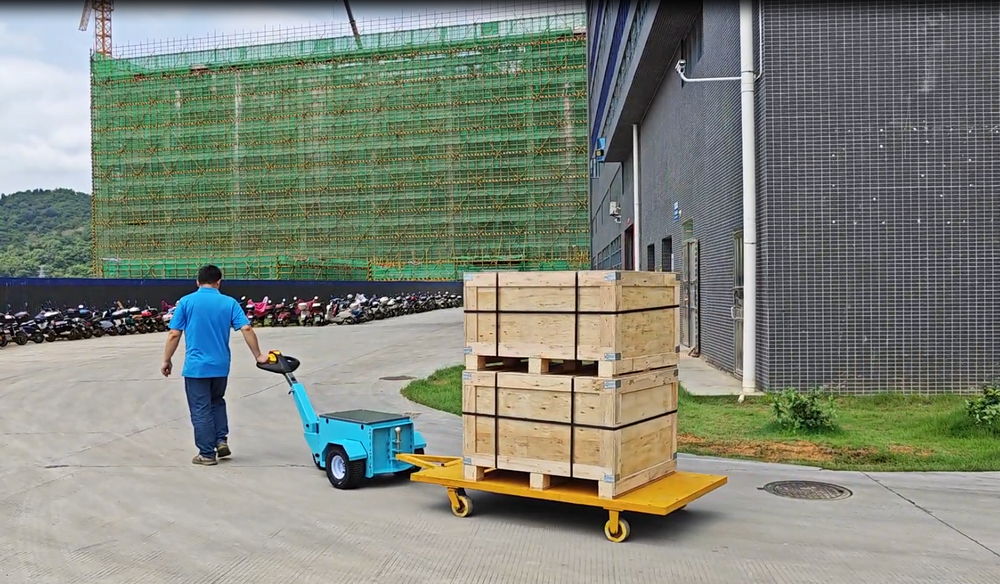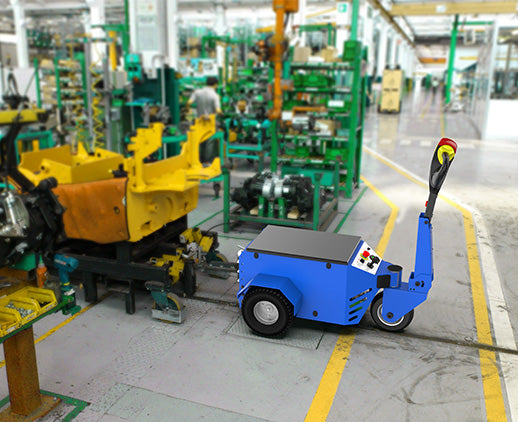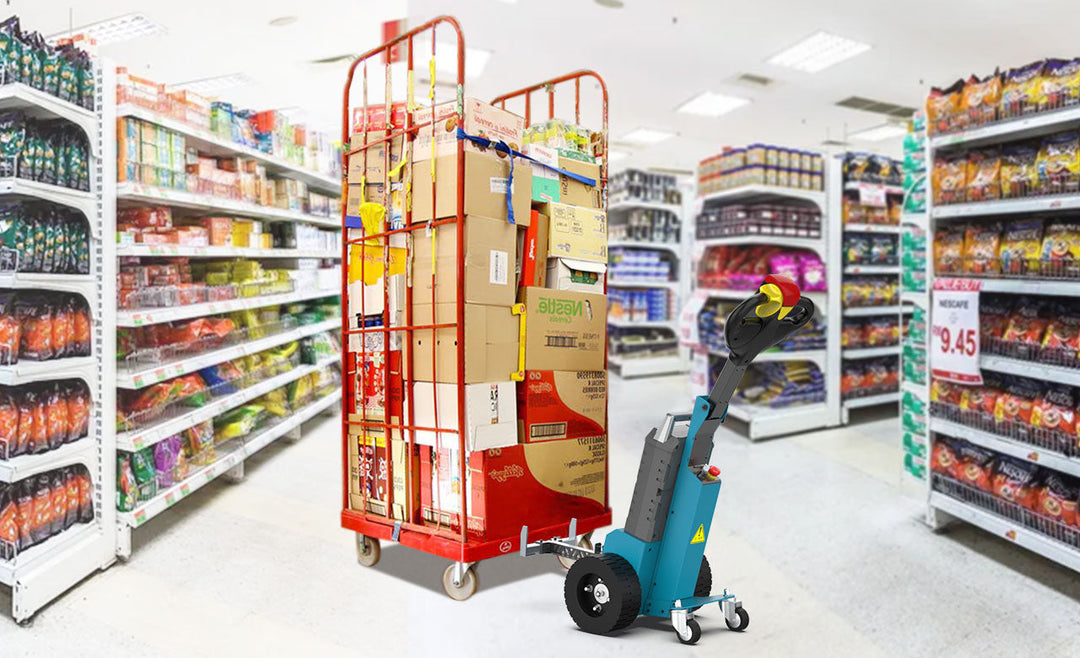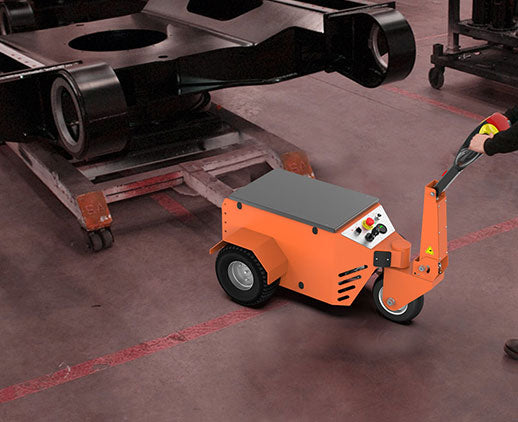Can an Electric Tugger Really Last 8000 Hours? Discover GYPOT's Durability Promise
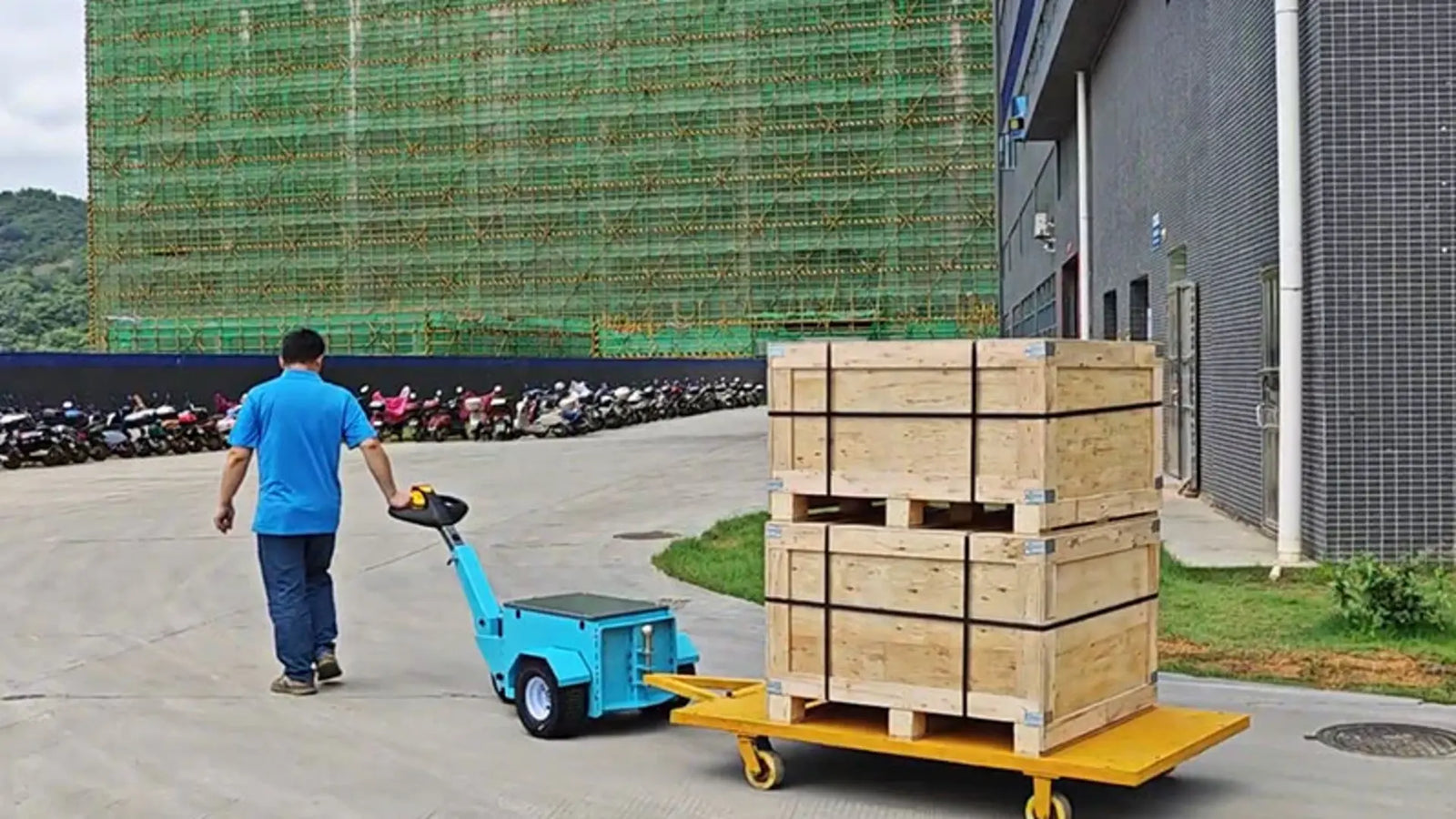
Yes, GYPOT's electric tow tugger can run over 8,000 hours, which covers over 3+ years at 8-hour use every single day. Appropriately built with forged alloy gears and a precision motor at the core, it withstands 15,000 Nm torque, making it durable enough to work in highly loaded industrial uses.
Built to Last
GYPOT electric tow tuggers are designed, keeping in view long life for operation in heavy industrial use. Each tugger is put through a severe test cycle simulating on-site use and targets over 8000 hours of operational reliability. In practical terms, this benchmark means that a GYPOT tugger running eight hours per day can give continuous service for more than three years—a feat few competitors can boast of.
The durability of the electric tuggers from GYPOT mainly comes from the carefully selected materials and precision engineering in them. Forged alloy steel is used in one of the more important components, namely transmission gears. Unlike cast metals that can be liable to internal porosities and micro-cracks, forged alloy steel has a uniform grain structure that would enhance its tensile strength and resistance to fatigue considerably. In the laboratory, GYPOT gears take on loads over 15,000 Nm without deforming—a figure that speaks volumes for their strength in high torque applications. This level of durability assures that these tuggers can match the demands of heavy-load environments such as those found in warehouses, automotive manufacturing facilities, and at airports without the frequent breakdowns or wear common in less robust machinery.
Besides, GYPOT incorporates enhanced sealing to protect the internal components against dust, moisture, and other contaminants that commonly affect operational lifetime for an electric tugger. For this reason, tuggers are protected due to the IP65-rated sealing systems from dust ingression and low-pressure water jets from any direction. This form of protection is highly welcome in industries that have very harsh environments, such as in logistics centers with heavy human traffic and on production floors where airborne particles are very common. Such sealing mechanisms reduce the frequency of maintenance and ensure that the operating internal parts maintain their optimal conditions for a long period.
Silent Operation
Noise has often been said to be the most neglected feature in heavy machinery; however, it seriously impinges on both workplace productivity and personnel comfort. High levels of noise would sooner or later result in weariness, loss of concentration, and even hearing problems for many hours in operators after exposure to high noise levels. Understanding this fact, GYPOT includes noise reduction as one of the features in its electric tow tuggers to less than 60 decibels—very much below that compared to the industrial average of 70-75 decibel noise levels.
This low-noise operation is obtained by many engineering enhancements: first, the custom-designed GYPOT brushless DC motor reduces the noise by lessening electromagnetic interference and mechanical friction. While conventional brushed motors generate noise from friction between the brush and periodic commutation, the brushless motors of GYPOT have electronically controlled commutation, thus making them quieter; this also accounts for longer motor life. Noise tests performed under conditions of load, for example, have shown that during peak operation, the GYPOT tugger is at approximately 58 decibels, which is basically the level of noise that somebody would experience in a quiet office. Because of this, it is particularly applicable to noise-sensitive uses, like the logistics surrounding hospitals or the transportation of library materials.
Noise is also minimized through the application of high-precision ball bearings and noise-dampening materials in the chassis. Increasingly, the rolling friction is minimized by the lubrication of high-performance synthetic greases applied to the bearings for smoother and quieter operation. The composite materials of the chassis are specially chosen for their sound-dampening characteristics—absorbing unwanted vibration generated by the motor and transmission system. These engineering decisions combine in providing a machine that gives minimal noise pollution, thus providing a more comfortable and safer working area, particularly where the work has to be confined or noise is strictly regulated.
Precision Engineering
Precision engineering in industrial machinery is important; this ensures consistency in performance and reduces wear and tear over a long period. For example, electric tuggers manufactured by GYPOT demonstrate the degree of precision in manufacturing rivaled by very few competitors. Literally every piece—from the motor shaft to the gear teeth—is fabricated to tight tolerances so that everything fits together and works just right. For instance, motor shafts are machined to a tolerance of ±0.01 mm. This eliminates axial and radial run-out, hence reducing mechanical stresses on the bearings and increasing its life.
The manufacturing process in GYPOT includes computer numerical control machining on all critical components for accuracy in dimensions and repeatability. To this end, precision grinding of gear teeth accomplishes a surface roughness of less than Ra 0.8 μm. This fine texture reduces friction between the gear surfaces, lowering the generation of heat and reducing wear—all very critical factors towards the target durability of 8000 hours. By keeping such high standards of accuracy in manufacturing gears, GYPOT minimizes the losses in transmission and increases the overall efficiency of the tugger.
Another major sphere of precision engineering that GYPOT is concerned with involves advanced motor control algorithms. It also designs in-house custom controllers for electric tuggers, using a closed-loop feedback system whereby continuous monitoring and real-time adjustment of motor speed, torque, and position are done. The degree of control here ensures that the tugger is always at its optimum efficiency for any given load conditions—with no possibility of overloading or stalling, which could otherwise have led to its premature wear or mechanical failure. The closed-loop system offers high-resolution encoders that can detect changes in position down to 0.001 degrees. As a design feature for a tugger, this is important because it allows for precise control of the moves and contributes significantly to the overall longevity of the machine.
Alloy Gear Strength
One of the defining features of GYPOT electric tuggers is the use of alloy gears at the drive systems. This directly relates to the hardness, hence the sustainability of the machine against continuous operation. The gears are forged from high-strength alloy steel, heat-treated in multiple stages to increase hardness and resistance to wear. This heat treatment includes carburizing, a process by which carbon is diffused into the surface of the steel so that it has a hard, abrasion-resistant skin with a tough, ductile core that can absorb impact loads without fracturing.
Precision grinding on each gear refines the tooth profile for an optimum contact between the pairs of gears after the heat treatment process. This step refines the precision grinding that will improve the contact ratio of the gears hence reducing the possibility of either pitting or surface fatigue, even under high load conditions. For example, alloy gears from GYPOT showed a life cycle of over 20,000 cycles without measurable wear in standardized load testing, which shows resistance to heavy-duty applications. The tensile strength of the gears is above 1200 MPa to bear sudden changes in the load, such as sudden starts or stops, common in material handling and towing operations.
GYPOT also treats its alloy gears with an anti-corrosion layer so that extreme operating conditions can be withstood in respect to moisture, chemicals, and temperature fluctuations. This usually comprises a layering of zinc or phosphate for additional protection, making sure the gears will not deteriorate in structure and performance. Thus, GYPOT invests in the best quality materials and protection treatments that assure its tuggers go beyond mere industrial standards when it comes to durability and reliability.
Tested for Longevity
No GYPOT electric tugger reaches the end-user without undergoing extensive durability testing that simulates the harshest on-site conditions. Every tugger goes through a series of continuous operations under load, extreme temperature testing, and accelerated wear simulations. In just one of the durability tests, a GYPOT tugger loaded with 1000 kg ran continuously for over 500 hours, reflecting several months of intensive daily use. This test is devised to identify any potential points of failure, enabling GYPOT's engineers to address vulnerabilities before the product reaches market.
Besides load testing, GYPOT tuggers are made to undergo thermal cycling tests, comprised of rapid-temperature changes to analyze how the machine would be able to function in a rapidly changing environmental condition. Such tests are very relevant in applications for an environment that involves indoor and outdoor operations; mostly logistics centers or airport runways. The results have been consistent that GYPOT tuggers maintain their performance within optimum parameters even after exposure to temperatures ranging from -20°C to 60°C. Such resilience makes the electronic and mechanical systems of the tugger strong enough to take on stresses due to extreme operating environments.
Besides this, GYPOT employs advanced fatigue analysis techniques to check key components like the frame, axles, and suspension system for durability. The FEA can simulate the stress distribution across the frame, targeting possible weak points and optimizing the design for maximum strength. GYPOT frames have passed such testing by sustaining more than 50,000 cyclic loads without deformation, as evidence of structural integrity. GYPOT ensures that its tuggers can work for 8000 hours or more reliably by rigorously testing each component. This way, customers can remain assured of a reliable solution to their material handling needs.
Why 8000 Hours?
The commitment to 8000 hours of operational lifespan is not merely a slogan but one which is quantified based on empirical data and extensive testing. In this benchmark, GYPOT synthesized customer usage patterns from several industries: automotive manufacturing, warehousing, and logistics. Their average operational demands are usually around 8-10 hours per day, about 2500 to 3000 hours per year. By targeting the design of its tuggers for at least 8000 hours of operation, GYPOT ensures that even in highly demanding applications its products are able to serve out their expected lifecycles without frequent replacements or major overhauls.
This is based on a very comprehensive field data collection from its current customer base. Indeed, the application at a motor car assembly plant showed that even beyond 9000 running hours of service, with just regular maintenance, the electric tuggers from GYPOT performed optimally. Real-life evidence like this will certainly lend credence to the 8000-hour assurance as being realistic for any client of the tuggers from GYPOT to withstand everyday industrial use for several years.
It is also worth mentioning that the 8000-hour promise allows GYPOT to stay consistent with the concept of sustainability. A longer lifetime of products manufactured implies a reduction in environmental harm resulting from production, transportation, and disposal of machinery. Longer-lasting tuggers translate to fewer replacements and an overall reduced carbon footprint, which is very well aligned with the growing trend of sustainable industrial practices. For the customers, this longevity means lower TCOs because the need for frequent turnover of equipment is reduced, and hence businesses can make more efficient usage of resources.
GYPOT's Quality Guarantee
In support of the claim of the operating durability of 8000 hours, GYPOT provides a full warranty for its major components, including the motor, transmission, and control systems. This warranty, which goes up to three years or 8000 operational hours, speaks volumes about GYPOT's confidence in the quality and reliability of its products. In case any of the covered components fail during the period of this warranty, GYPOT will provide replacement parts and technical support without any charge to minimize the customer's downtime and help them keep their productivity uninterrupted without unexpected expenses.
The quality assurance program of GYPOT also maintains a network of certified service centers and trained technicians who can easily be availed of for whatever maintenance and repair services may be needed. Periodic training sessions for operators and maintenance staff are also offered by GYPOT to help customers get the most life from their tuggers by adhering to best practices in operation and care. GYPOT further extends the value proposition by offering comprehensive support for its tuggers and makes it quite reliable, besides being cost-effective for businesses to ensure a long-term solution for their material handling needs.




